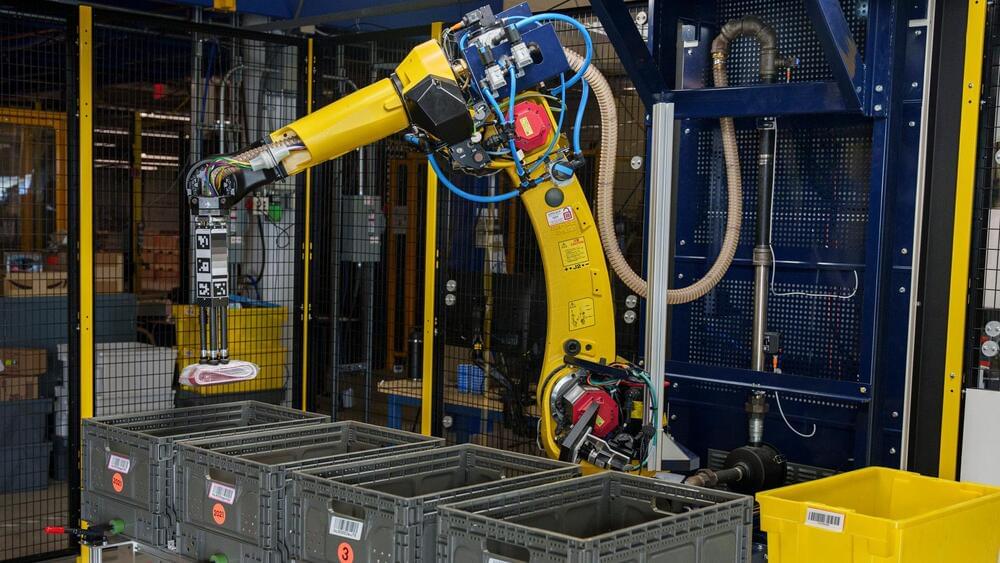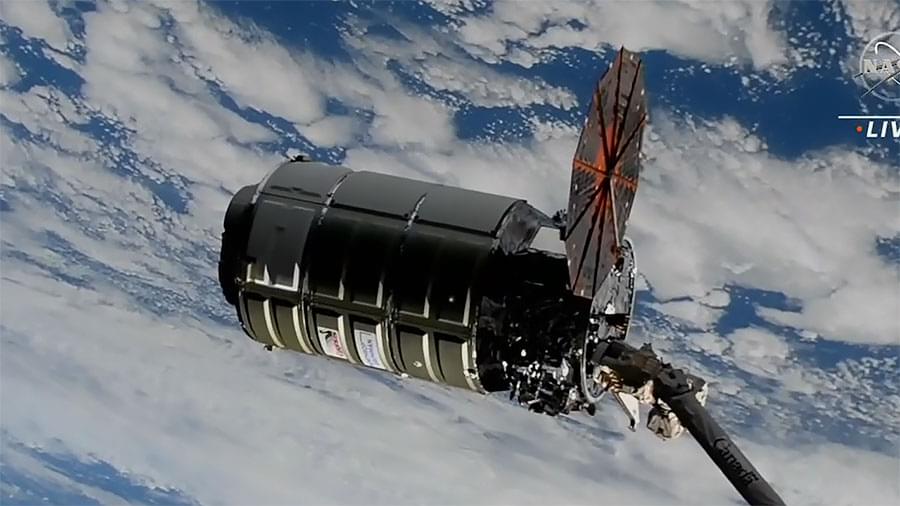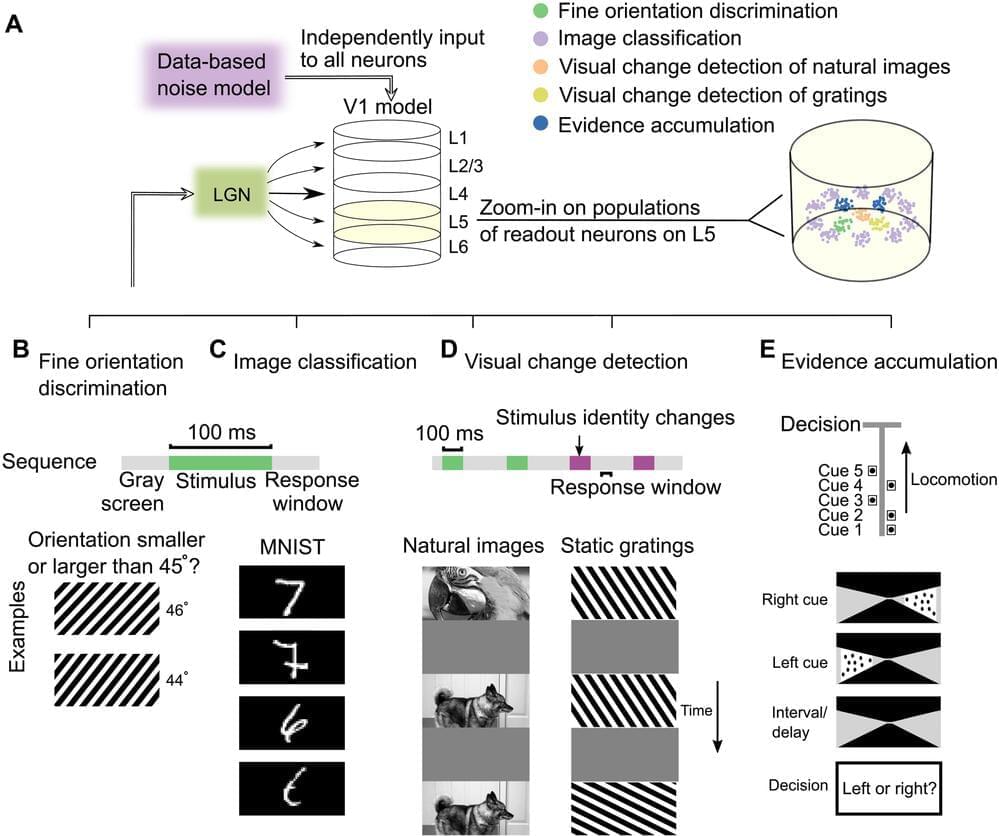Free AI software is primed to strip away the control of studios and actors who appears in films.
Category: robotics/AI – Page 1,520


BodyTrak wrist camera constructs 3D models of the body in real time
Wearable technology is capable of tracking various measures of human health and is getting better all the time. New research shows how this could come to mean real-time feedback on posture and body mechanics. A research team at Cornell University has demonstrated this functionality in a novel camera system for the wrist, which it hopes to work into smartwatches of the future.
The system is dubbed BodyTrak and comes from the same lab behind a face-tracking wearable we looked at earlier in the year that is able to recreate facial expressions on a digital avatar through sonar. This time around, the group made use of a tiny dime-sized RGB camera and a customized AI to construct models of the entire body.
The camera is worn on the wrist and relays basic images of body parts in motion to a deep neural network, which had been trained to turn these snippets into virtual recreations of the body. This works in real time and fills in the blanks left by the camera’s images to construct 3D models of the body in 14 different poses.

AI Researchers At Mayo Clinic Introduce A Machine Learning-Based Method For Leveraging Diffusion Models To Construct A Multitask Brain Tumor Inpainting Algorithm
The number of AI and, in particular, machine learning (ML) publications related to medical imaging has increased dramatically in recent years. A current PubMed search using the Mesh keywords “artificial intelligence” and “radiology” yielded 5,369 papers in 2021, more than five times the results found in 2011. ML models are constantly being developed to improve healthcare efficiency and outcomes, from classification to semantic segmentation, object detection, and image generation. Numerous published reports in diagnostic radiology, for example, indicate that ML models have the capability to perform as good as or even better than medical experts in specific tasks, such as anomaly detection and pathology screening.
It is thus undeniable that, when used correctly, AI can assist radiologists and drastically reduce their labor. Despite the growing interest in developing ML models for medical imaging, significant challenges can limit such models’ practical applications or even predispose them to substantial bias. Data scarcity and data imbalance are two of these challenges. On the one hand, medical imaging datasets are frequently much more minor than natural photograph datasets such as ImageNet, and pooling institutional datasets or making them public may be impossible due to patient privacy concerns. On the other hand, even the medical imaging datasets that data scientists have access to could be more balanced.
In other words, the volume of medical imaging data for patients with specific pathologies is significantly lower than for patients with common pathologies or healthy people. Using insufficiently large or imbalanced datasets to train or evaluate a machine learning model may result in systemic biases in model performance. Synthetic image generation is one of the primary strategies to combat data scarcity and data imbalance, in addition to the public release of deidentified medical imaging datasets and the endorsement of strategies such as federated learning, enabling machine learning (ML) model development on multi-institutional datasets without data sharing.

My Robot Wife
My AI Girlfriend won’t talk to me unless I renew my annual Netflix subscription.
— You in five years
Everyone has written about the dangers of AI and the uncertain future of humanity, and many of these worries focus on large scale issues like disinformation, democracy, wartime decision making by computers, etc. However, it is the small and personal changes to human life that tend to create the biggest effects down the line. If we assume that a sizeable portion of the population will have, at some point, some form of AI assistant, friend, companion, etc. and that these AI assistants are designed by for-profit companies to perfectly press our psychological buttons, then we are in serious danger of handing ourselves over to the whims of those companies, or governments.

Using vibrations to control a swarm of tiny robots
Vibrating tiny robots could revolutionize research.
Individual robots can work collectively as swarms to create major advances in everything from construction to surveillance, but microrobots’ small scale is ideal for drug delivery, disease diagnosis, and even surgeries.
Despite their potential, microrobots’ size often means they have limited sensing, communication, motility, and computation abilities, but new research from the Georgia Institute of Technology enhances their ability to collaborate efficiently. The work offers a new system to control swarms of 300 3-millimeter microbristle robots’ (microbots) ability to aggregate and disperse controllably without onboard sensing.

AI helps optimize power electronic converters
A new and more efficient way of modeling and designing power electronic converters using artificial intelligence (AI) has been created by a team of experts from Cardiff University and the Compound Semiconductor Applications (CSA) Catapult.
The method has reduced design times for technology by up to 78% compared to traditional approaches and was used to create a device with an efficiency of over 98%.
The team’s findings have been published in the IEEE Open Journal of Power Electronics and IEEE Transactions on Power Electronics.

From ‘Chief Twit’ to ‘Twitter Complaint Hotline Operator’
Elon Musk doesn’t follow the same standards that most entrepreneurs do. He’s different, he likes to be different!
And when you’re different, and you’re not afraid to be, it’s okay to test a cigar (or should I say ‘joint’?) of tobacco mixed with marijuana, on Joe Rogan’s famous podcast. But if you look closely, Elon was just nice (polite) and followed Rogan’s elaborate script. Before trying it, Musk even asked him if it was legal.
Then all those facial expressions of Musk, which photojournalists love to catch, go viral as if he’s there promoting some soft drug or passing abroad that his office at Tesla (or SpaceX) is enveloped in a large cloud of smoke.
Quite the opposite. The expressions themselves spoke for themselves, as if to say, “This is nothing special, Joe. Why do you waste my time with these scenes”? Musk even claimed that weed is not good for productivity at all, but it has nothing against (as I do, by the way).

Astronauts Command Robotic Arm to Capture Cygnus
At 5:20 a.m. EST, NASA astronaut Nicole Mann, with NASA astronaut Josh Cassada acting as backup, captured Northrop Grumman’s Cygnus spacecraft using the International Space Station’s Canadarm2 robotic arm. Mission control in Houston will actively command the arm to rotate Cygnus to its installation orientation and then to guide it in for installation on the station’s Unity module Earth-facing port.
NASA Television, the NASA app, and agency’s website will provide live coverage of the spacecraft’s installation beginning at 7:15 a.m.
The Cygnus spacecraft launched Monday on an Antares rocket from NASA’s Wallops Flight Facility, Virginia at 5:32 a.m. This is Northrop Grumman’s 18th commercial resupply mission to the International Space Station for NASA. The Cygnus spacecraft is carrying a supply of 8,200 pounds of scientific investigations and cargo to the orbiting laboratory.

A new large-scale virtual model of the visual cortex is highly successful in solving visual tasks
Human Brain Project researchers have trained a large-scale model of the primary visual cortex of the mouse to solve visual tasks in a highly robust way. The model provides the basis for a new generation of neural network models. Due to their versatility and energy-efficient processing, these models can contribute to advances in neuromorphic computing.
Modeling the brain can have a massive impact on artificial intelligence (AI): Since the brain processes images in a much more energy-efficient way than artificial networks, scientists take inspiration from neuroscience to create neural networks that function similarly to the biological ones to significantly save energy.
In that sense, brain-inspired neural networks are likely to have an impact on future technology, by serving as blueprints for visual processing in more energy-efficient neuromorphic hardware. Now, a study by Human Brain Project (HBP) researchers from the Graz University of Technology (Austria) showed how a large data-based model can reproduce a number of the brain’s visual processing capabilities in a versatile and accurate way. The results were published in the journal Science Advances.